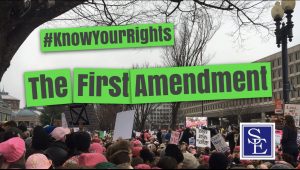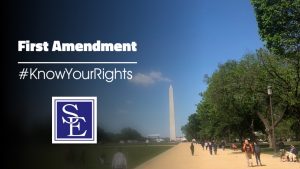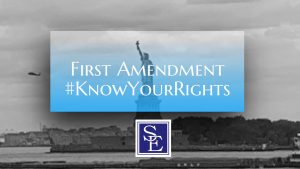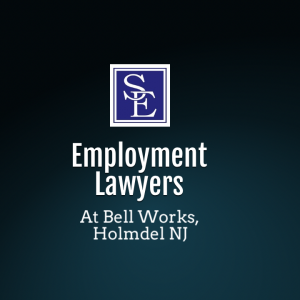A former employee of Donald Trump’s 2016 Campaign has won a major legal victory against her former employer. Denson v. Donald J. Trump for President, Inc., Slip Copy, 2021 WL 1198666 (S.D.N.Y. March 30, 2021). Jessica Denson has won a summary judgment motion against the Campaign barring it from enforcing overly broad and vague non-disclosure and non-disparagement clauses contained in her Employment Agreement. The District Court for the Southern District of New York found in favor of plaintiff Jessica Denson and against defendant Donald J. Trump For President, Inc. and declared the Campaign’s non-disclosure and non-disparagement provisions invalid and unenforceable as unconstitutional under the First Amendment.
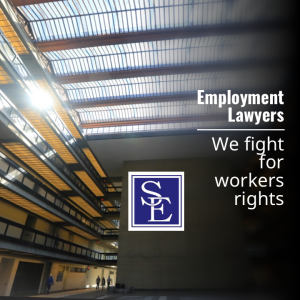 Denson argued that the non-disclosure and non-disparagement provisions of the Employment Agreement are unenforceable under New York law for several reasons, including that they restrict employee speech ad infinitum, their definition of confidential information is practically all-encompassing, they restrict speech on political matters and other topics of public concern, they threaten employees with severe financial penalties for breach, and they prevent employees from reporting misconduct in the workplace. In response, the Campaign claimed, among other things, that its privacy interests outweighed employee rights to unfettered free speech, and employees had waived their First Amendment rights anyway by signing the Employment Agreement. Also in response to Denson’s claims that the non-disclosure and non-disparagement clauses were overbroad prohibitions on free speech and therefore unenforceable, the Campaign argued that she had failed to adequately identify how they had hindered her speech. Specifically, the Campaign pointed to Denson’s public statements expressing her negative opinions of the Campaign and former President Donald Trump, which she had posted on social media platforms over the past couple of years, allegedly without any legal action being taken against her. The Campaign even went so far as to confirm that it has no plans to enforce the non-disclosure or non-disparagement clauses against Denson in the future if she chooses to continue expressing her views. The Campaign argued that Denson could not show that the Employment Agreement “chilled” her exercise of free speech without presenting a specific, objective present or future harm. The Court disagreed.
Denson argued that the non-disclosure and non-disparagement provisions of the Employment Agreement are unenforceable under New York law for several reasons, including that they restrict employee speech ad infinitum, their definition of confidential information is practically all-encompassing, they restrict speech on political matters and other topics of public concern, they threaten employees with severe financial penalties for breach, and they prevent employees from reporting misconduct in the workplace. In response, the Campaign claimed, among other things, that its privacy interests outweighed employee rights to unfettered free speech, and employees had waived their First Amendment rights anyway by signing the Employment Agreement. Also in response to Denson’s claims that the non-disclosure and non-disparagement clauses were overbroad prohibitions on free speech and therefore unenforceable, the Campaign argued that she had failed to adequately identify how they had hindered her speech. Specifically, the Campaign pointed to Denson’s public statements expressing her negative opinions of the Campaign and former President Donald Trump, which she had posted on social media platforms over the past couple of years, allegedly without any legal action being taken against her. The Campaign even went so far as to confirm that it has no plans to enforce the non-disclosure or non-disparagement clauses against Denson in the future if she chooses to continue expressing her views. The Campaign argued that Denson could not show that the Employment Agreement “chilled” her exercise of free speech without presenting a specific, objective present or future harm. The Court disagreed.
Relying on the reasoning of a 2010 case called Ashland Mgmt. Inc. v. Altair Invs. NA, LLC, 59 A.D.3d 97, 102 (1st Dept. 2008), aff’d as modified, 14 N.Y.3d 774 (2010), the Court applied a standards based test to the Employment Agreement. Specifically, the Court analyzed whether the clauses at issue were “reasonable in time and area, necessary to protect the employer’s legitimate interests, not harmful to the general public and not unreasonably burdensome to the employee.” As to the scope of the clauses, the Court found them to be essentially unlimited. The Campaign had defined “confidential Information” to include a variety of vague categories without clear definitions or limits. In fact, the Court was unpersuaded by the Campaign’s argument that certain categories of information are integral to the Campaign’s privacy interest, such as campaign strategy and communications. The Court found that even with respect to those categories of legitimate interest, the terms were not adequately defined, and thus were broad enough to cover any information at all relating to the Campaign. Recognizing that the Campaign has a legitimate interest in protecting certain information from disclosure, the Court still held that the non-disclosure provision was not written narrowly enough. “Indeed, the vagueness and breadth of the provision is such that a Campaign employee would have no way of knowing what may be disclosed, and accordingly Campaign employees are not free to speak about anything concerning the Campaign. The non-disclosure provision is thus much broader than what the Campaign asserts is necessary to protect its legitimate interests, and therefore is not reasonable.”
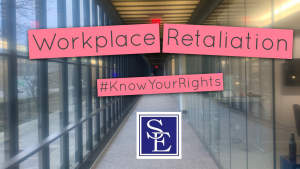
 New Jersey Employment Lawyers Blog
New Jersey Employment Lawyers Blog


